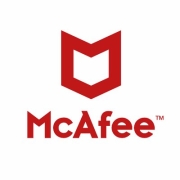Application Control solutions offer enhanced security through granular management of application execution, helping organizations protect against unauthorized software and potential security threats.
Implementation of Application Control is crucial for securing IT environments. These solutions enable precise control over which applications are allowed to execute, reducing the risk of malware infiltrations. By leveraging user insights, organizations can tailor policies that meet their specific security and operational requirements. Many users find that successful deployment requires a balance between strict security measures and maintaining user productivity.
What features should you look for in Application Control solutions?Application Control is implemented across numerous industries, including finance and healthcare, where security is paramount. These sectors benefit from strict software access protocols to protect sensitive data and support compliance with strict regulations.
Application Control offers organizations a critical layer in their cybersecurity strategy, safeguarding digital resources from unauthorized access and ensuring system integrity.
| Product | Market Share (%) |
|---|---|
| ThreatLocker Zero Trust Endpoint Protection Platform | 19.4% |
| Airlock Digital Application Control | 12.9% |
| VMware Carbon Black App Control | 12.5% |
| Other | 55.2% |




















Application Control solutions offer numerous advantages like enhancing security by preventing unauthorized applications from running, reducing the attack surface area. These solutions also ensure compliance with regulatory standards by allowing only whitelisted applications, enhancing productivity through reduced system downtime and ensuring optimal system performance. You can also benefit from better resource management since these solutions effectively allocate resources to only necessary applications.
How does Application Control improve IT security?Application Control enhances IT security by ensuring only trusted and verified applications are allowed to execute. This mitigates risks associated with malware and unauthorized software, effectively reducing potential security breaches. Application Control solutions keep you ahead of threats by continuously updating application information to cope with evolving security challenges. With this proactive approach, your organization can focus on strategic security improvements.
Can Application Control solutions be customized for different environments?Yes, modern Application Control solutions are highly customizable to fit various environments, from small businesses to large enterprises. These solutions offer flexibility in creating custom policies tailored to your specific security needs. You can adjust application whitelisting and blacklisting based on your organization's requirements, ensuring a balance between security and usability. This adaptability makes these solutions suitable for diverse organizational structures.
What is the difference between Application Control and traditional antivirus software?Unlike traditional antivirus software that reacts to known threats, Application Control proactively prevents unauthorized applications from running. Antivirus relies on signature updates to identify malware, whereas Application Control restricts applications that do not meet predefined policies. This proactive approach offers a more robust defense against zero-day vulnerabilities and advanced persistent threats, providing a higher level of protection for your systems.
How can Application Control enhance compliance with regulatory standards?Application Control can significantly improve your compliance posture by ensuring only applications that comply with regulatory requirements are used. By implementing rigorous whitelisting processes, you can demonstrate adherence to regulations such as GDPR, HIPAA, or PCI DSS. Application Control solutions offer comprehensive audit trails and reporting capabilities, making it easier to provide evidence of compliance during reviews and audits.